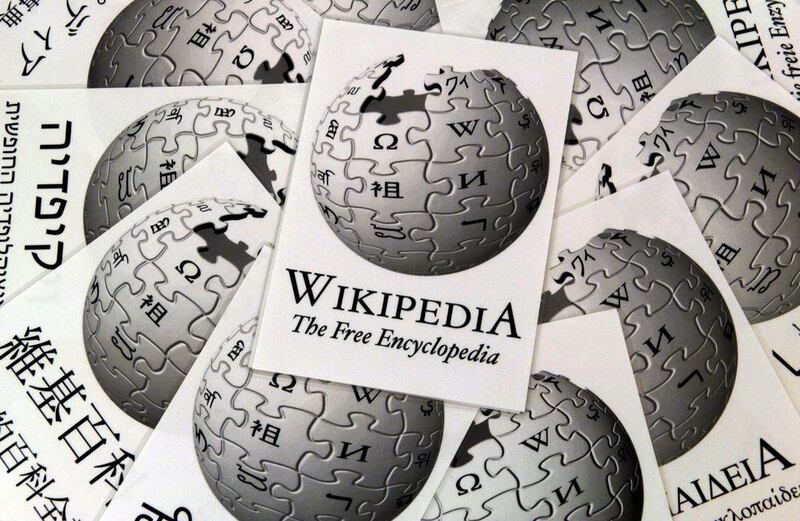If you are Armenian, then the government of Armenia has a message for you: write something about your country.
Armenia is running a national campaign called “One Armenian, One Article” to encourage people to write about the country on Wikipedia. It’s clearly working as Armenia now has more than four times as many articles on the site than its neighbour Azerbaijan.
Armenia’s interest in Wikipedia stems from the site’s reach. It is one of the top 10 most accessed websites in the world, and the only one that is not commercial. This apparent impartiality gives it an authority that masks a significant bias.
For example, according to Wikipedia’s own numbers, the site is significantly skewed against women (just 13 per cent of contributors) and towards the young – Wikipedia has as many contributors between the ages of 18 and 22 as it does across the whole age spectrum from 30 to 85.
Unsurprisingly, that bias is reflected in what is written. Topics that appeal to American men under 22 are disproportionately covered in the articles. Vast blocks of text are dedicated to science fiction, pop culture and video games. Comparatively little is dedicated to history or literature.
Of greater concern is the site’s “perspective”. Take the article on the Korean War, a conflict that involved North and South Korea as well as China and the United States. The article is written overwhelmingly from the US perspective; the central narrative is America-centric, while the narratives of the other groups are claims and comments.
Like any other work of history, politics or journalism, Wikipedia has its biases and blind spots, its omissions and assumptions. The difference is its claim to studious impartiality. And the other difference is that anyone can edit it.
That’s why the Middle East would do well to heed Armenia’s message and get scribbling, both in English and in Arabic.
There is already a great deal of content in Arabic on the site, but not in numbers commensurate with Arabic’s status as a major world language. Arabic is, depending on who you ask, the fourth or fifth most widely spoken language in the world, and one of the six official languages of the United Nations. Yet there are fewer pages on the site in Arabic than in Dutch or Polish.
Another metric is to look at where contributors are based. The Oxford Internet Institute has an innovative data project that plots where edits were made. The result is a map of the world showing where edits to Wikipedia in Arabic were made.
It is rather a beautiful map that throws up some interesting fragments: there are a surprising number of Swiss- and Japan-based writers contributing in Arabic. Across the Middle East, the Levantine corridor from Syria, through Lebanon and Palestine is particularly well represented, as is Tunisia. Libya is not, nor is Egypt (whose contributors prefer to write in “Egyptian Arabic”, a separate language site).
The Peninsula is almost empty – barely anyone from Saudi Arabia contributes, apparently (or if they do, perhaps they do so from servers overseas); Yemen is well-represented, Iraq is not at all, and there are three dense hives of activity immediately recognisable as Dubai, Abu Dhabi and Doha.
(Across the wider web, Arabic is more widely used; it is, according to Google, the eighth most used language worldwide. But Arabic content is still rare: accounting for just 3 per cent of the total web.)
The same applies to English-language pages about Arab or Middle Eastern content. This is, admittedly, rather harder to analyse, if only because it is harder to know where contributors on a particular topic are based or what they are writing about.
But it is noticeable that content about Middle Eastern culture is often cursory. The Yacoubian Building, one of the most important novels to emerge from the Arab world this century – and one that has been translated into English and made into a film – only has a short entry on the site. Despite being rich in metaphor and symbolism, very little of its depth is conveyed by the article.
Elsewhere, Arab history is often written from a western perspective, and social and cultural aspects of the region are often explained in simplistic terms (gender, religion) that reflect the tropes of current discussion.
There is comparatively little on Islamic scientists – the man often thought to have invented algebra, Al Khwarizmi, has only a short entry – and the article on the great Persian poet Farid Ud-Din Attar, while lengthy, is not commensurate with his literary stature.
All of which – leaving aside the fraught politics of the region and the enormous conflicts over what is written on Israel and Palestine – is reason enough to pick up a virtual pen. There are initiatives, such as the fantastic Taghreedat, a crowdsourcing site that brings translators and writers together online, but nothing can replace the power of people.
Try this experiment: pick up the last book you read and write two lines about it for the site.
falyafai@thenational.ae
On Twitter: @FaisalAlYafai





